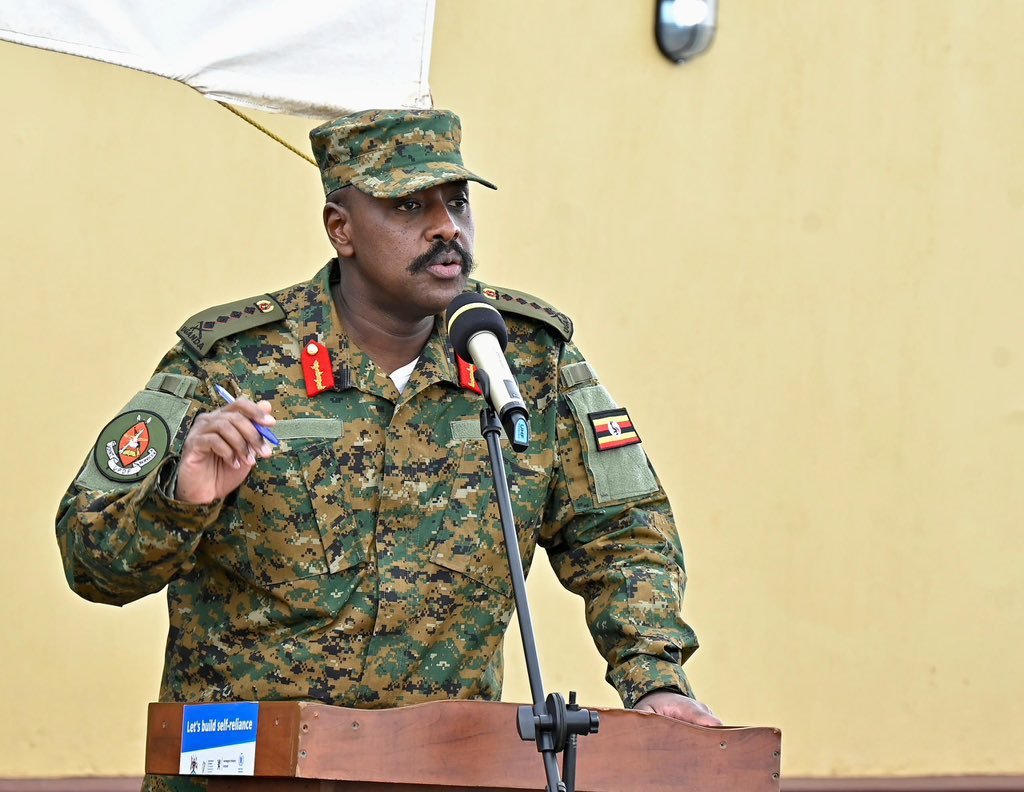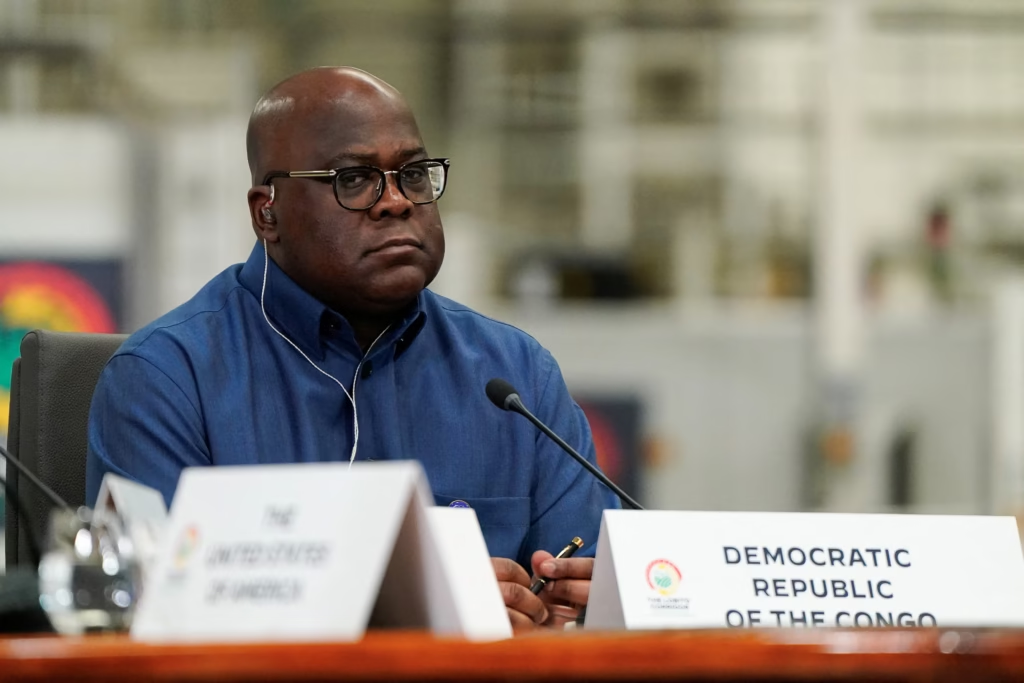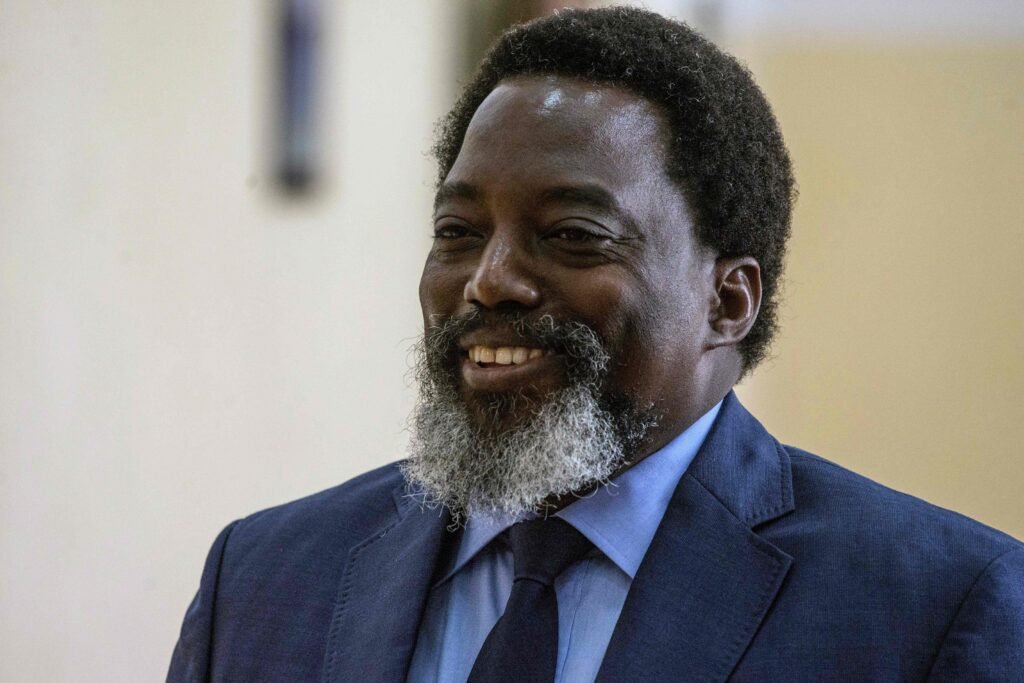KAMPALA, UGANDA — Uganda’s Chief of Defence Forces, General Muhoozi Kainerugaba, son of President Yoweri Museveni, has taken an unusually public and assertive stance on the political future of the Democratic Republic of Congo (DRC), explicitly stating that former President Joseph Kabila will not be allowed to return to power.
Through a series of forceful messages on the social media platform X (formerly Twitter) on Friday, Gen. Muhoozi openly expressed his support for current President Félix Tshisekedi, highlighting Uganda’s growing interest in the stability and economic partnership with the DRC.
“I will not let Joseph Kabila become a President of DRC again! You can forget about that,” Gen. Muhoozi declared.
Gen. Muhoozi further criticized Kabila for his perceived role in allowing the Allied Democratic Forces (ADF), a rebel group originating from Uganda, to establish a strong presence in eastern Congo over nearly two decades, stating, “Kabila allowed ADF to subsist in Eastern DRC for 17 years. He never allowed us to take action against them. H.E. Tshisekedi is much better than him in that respect.”
Gen. Muhoozi concluded his statements with a strong endorsement of the current DRC leadership: “My big brother, H.E. Felix Tshisekedi, is President of DRC and I will support him as much as possible.”
These remarks were made shortly after the governments of Rwanda and the DRC signed a U.S.-brokered Declaration of Principles for Peace in Washington, D.C., an agreement witnessed by Secretary of State Marco Rubio.

This agreement commits both nations to mutual respect for sovereignty, regional integration, and collaborative efforts to dismantle armed groups operating along their shared borders.
Uganda-DR Congo ties
The strategic importance of Uganda’s relationship with the DRC has significantly increased over the past decade. Data from the Bank of Uganda indicates that the DRC has become Uganda’s second-largest export destination, following South Sudan, not Kenya as initially reported.
In 2023 alone, Uganda’s official exports to its western neighbor exceeded $500 million, with unofficial cross-border trade estimated to bring the total closer to $700 million. Key exports include cement, iron and steel products, foodstuffs, and petroleum.
The DRC’s integration into the East African Community (EAC) in 2022 has further accelerated cross-border commerce, supported by infrastructure investments such as the Mpondwe One-Stop Border Post and ongoing road construction projects connecting Uganda to significant eastern Congolese towns.
Therefore, maintaining peace and fostering close diplomatic ties with Kinshasa is crucial for sustaining Uganda’s economic growth trajectory.
President Tshisekedi’s approach to security cooperation has differed markedly from that of his predecessor. Under Tshisekedi’s leadership, Uganda launched “Operation Shujaa,” a joint military offensive with Congolese forces aimed at dismantling the ADF in eastern Congo—an operation consistently obstructed by Kabila’s administration, citing concerns for Congolese sovereignty.

Moreover, the DRC government has, in recent years, accused figures with ties to Joseph Kabila of supporting armed groups such as the M23 and the newly formed Alliance Fleuve Congo (AFC), both of which have destabilized the eastern provinces and posed a threat to Uganda’s vital trade corridors.
Reports from the United Nations and Congolese intelligence suggest that networks associated with the former president’s political circles have provided support to some of these groups.
President Tshisekedi himself accused Kabila last year of being the ‘real leader’ of the AFC rebel movement, which formed an alliance with M23 insurgents to wage war against his government.
Kabila, who currently resides in Southern Africa, recently visited Goma, a city in Eastern DRC under the control of the AFC/M23 rebel movement. He reportedly stated that he felt “safe” in Goma compared to other parts of the DRC, signaling his close connections with the rebel movements controlling the region.
Return of Joseph Kabila
The potential reinstatement of Kabila as president, therefore, carries the significant risk of reigniting insecurity along Uganda’s borders, disrupting crucial trade, and reversing the hard-won security gains achieved under Tshisekedi.

By publicly denouncing Kabila and unequivocally endorsing Tshisekedi, Gen. Muhoozi is aligning Uganda with a regional agenda focused on stability, particularly at a time when Congo’s neighboring countries and international stakeholders, most notably the United States, are actively working to establish lasting peace agreements.
His remarks also serve to reassure Kinshasa of Uganda’s steadfast loyalty, especially amidst competing regional interests that threaten to undermine existing alliances.
Big market
Beyond the critical aspect of security, the economic stakes for Uganda are substantial. Eastern Congo represents one of the largest underexploited markets for Ugandan goods, and sustained stability in the region promises significant opportunities for investment in key sectors such as agriculture, energy, construction, and logistics.
Aligning firmly with President Tshisekedi’s administration not only safeguards these vital economic interests but also positions Uganda favorably within the broader regional integration agenda.
Analysts will likely agree that Gen. Muhoozi’s tweets, while unusually direct for a high-ranking military official, convey a calculated and strategic message: Uganda’s future prosperity is intrinsically linked to deepening its ties with legitimate and stable leadership in the DRC.
This pronouncement arguably represents the clearest indication yet that Kampala intends to unequivocally support allies committed to stability, robust economic cooperation, and international peace efforts—while distancing itself from political actors accused of fueling conflict and instability in one of Africa’s most resource-rich yet persistently volatile regions.
As the DRC navigates its next political transition, the contest for its future leadership will undoubtedly carry profound implications, not only for the Congolese people but also for the broader East African region.

